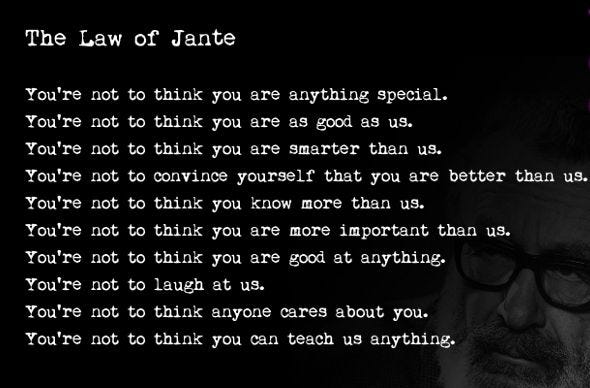
Stories are one of the strongest forces in our lives. We use stories all the time! To entertain, to explain and in general to make sense of the world to ourselves and others.
The stories I am talking about are not the stories you read to your kids or the stories you see in the press. I am talking about the stories you tell. The stories you tell others. The stories you tell yourself.
Stories are immensely important and I use them consciously to change my perceptions.
In this article, I will present 3 ways to start using stories to get a happier life.
Narrative Psychology is a perspective of Psychology that, you probably guessed it, explores the power of stories.
“The tales we tell hold powerful sway over our memories, behaviors and even identities, according to research from the burgeoning field of narrative psychology.”
One of the central themes in narrative psychology is that our identity is shaped by the stories we tell. At least in part. And the stories are an important tool in understanding the world around us.
We use stories to make sense of the world and shape our experiences into narratives that have meaning to us. Understanding stories is something we are almost born with or at least the most basic of stories.
Peekaboo is played with kids that are only a few months old and they understand the most basic part of a story, the climax.
One of my favorite books on the subject is Jerome Bruners Acts of meaning if you want to read more.
Well, enough about babies, we are not babies so let’s get back to grownups and why I am writing about this. Because this is important.
The stories I tell others define how they see me. The stories I tell myself define who I am.
That means I should manage my stories wisely. Before getting to the tools for how to change your ways, let’s look at some of the different kinds of stories that impact our lives.
What stories do I tell myself?
Let’s start with the stories we tell ourselves. One of the general narratives I tell myself is that I can’t remember anything. It is a convenient excuse in many situations. It’s something I share with others to explain why I can’t remember their names.
But that story is not entirely true. I can play trivial pursuit or Jeopardy with my friends and not be shamed out of the room, so I clearly have some memory.
And when I do a more objective analysis, then I have to conclude, that I may just be a little lazy when it comes to some forms of memory — especially around names.
So why do I keep telling myself and others that story? Because it has a benefit for me. It allows me to be lazy. It allows me to forget things and just blame it on my memory. This is not even a serious example.
I know many people with self-esteem issues that tell themselves that they are not good enough or that they can’t do this or that. Those stories are serious. Those stories are the ones that will limit you in life. Those are the stories you need to change.
“Do not feed the monster” Chade-Meng Tan, Search Inside Yourself

Another popular way of looking at the power of the stories you tell yourself is what e.g. Anthony Robbins would call limiting beliefs. Limiting beliefs are the things I believe to be true about myself and usually, I have a narrative around that.
But can that narrative survive scrutinization?
What stories do I tell others about me?
I tend to think about this in two different contexts. What I tell others about myself in a professional context and a private context. In the professional context it is much about my job and the career I have had. I have practiced the elevator pitch with the classic buildup of:
- Summary label
- Professional background
- Current position/situation
- Where you are going
And that does work well, but it is still a story that represents a certain angle. And it is the most simple story.
Then there are the stories you tell at work about prior experiences. How do I tell my colleagues about writing articles at Medium for example? When do I call myself a writer? Do I dabble with writing Medium articles or am I a writer now?
That can make a big difference both to how others perceive me and how I perceive myself.
In the private context, it is equally important what I tell others about myself. Do I tell others that my zodiac sign is the Pisces and that is why I behave in such and such a way? Or do I talk about my ENTP Meyers Briggs profile?
And more importantly, what stories do I tell to be funny? Are those stories about my big fails?
In Denmark and the rest of Scandinavia, we have “Janteloven” or the Law of Jante. That is an interesting “law” and one that is deeply rooted in our society.

The very short summary: You should not make yourself better than you are. Many stories that Scandinavians tell have a lot of irony or certain elements are downplayed to not look too good.
That may not have such a bit impact when talking to other Scandinavians. But as part of a global and connected society that can have a huge impact when talking to people from other cultures where this is not the norm.
The most important point is: We tend to tell stories that we know work, but not always stories that work in our best interest.
Am I managing the stories I tell others from a perspective of long term impact? At least not as well as I could.
What stories do I tell others about other people? Like my family or friends?
Telling stories about other people is one of the best ways to entertain.
My friend John made the most hilarious stunt the other day. When he was on his way to work on his bicycle he met this beautiful woman who was standing in the rain with her dog. He was looking so intently at her and trying to catch her eye. He is single by the way and has been looking for a girlfriend for ages. Well, he did not notice the huge hole in the ground right in front of him.
Do you know what happened?

What does that story say about me?
I am getting laughs because of someone else’s misfortune. What if you knew John? Maybe you would find it funny too because he is such a fun guy. Or maybe since he is miserable about not having a girlfriend you would not find it funny at all?
The stories I tell others shape the way they think about me. And the way they think about the other person the story is about.
I and my wife talk about this a lot. How stories about the people in our lives take shape. What the focus of these stories are and how this starts to influence the way we think about them.
How to create a happier life by minding your stories
It does not have to be difficult to change your perception of yourself or others. One of the keys to doing this is to change the stories you tell yourself and others.
The first thing you need to do is
Notice what I am telling myself and others
The stories I tell myself had a function. At the time when they started, they supported some parts of my life.
I still tell certain stories about former friends that confirm why I am not seeing them anymore. With family, it is easy to fall into patterns of telling and retelling stories about how a certain member of the family is always behaving in that particular (and often annoying) way.
The question to ask yourself is: What benefit do I have from telling that story?
- Is the story accurate?
- Is the person living up to an unfair reputation?
- Is it even possible to break free from those stories when they are told and retold?
That goes as much for the stories I tell myself. And if you are anything like me, there are plenty of stories going on in your head too.
The next thing you should do is a Marie Kondo on your stories. When a story is no longer creating any value for you. Either stories you tell yourself or you tell others. Then thank the story and let it go.
Not telling a story can change the way you think and feel about yourself and others!
When telling stories, think about telling them from a place of integrity. Are the stories you tell yourself and others representing your true values?
I am trying hard to be consistent with the stories I tell and use my values as the checkpoint for why I tell a story.
Be mindful that your stories are congruent with your values!
Next on the list is
Replace your stories: Use positive stories to change perceptions
This is one of the most effective ways to change your perception. Instead of telling yourself how bad you are at something, then replace that story with the story about how well you do something else.
Or, select a story about what you are not doing well and find elements that do not hold true.
In the past, I had a repeating story about how I cannot finish anything. It fit well with what I enjoy doing, starting things up, and true enough it may not be my biggest strength.
But continually telling myself that story made it more and more difficult to complete things.
I changed that story!
I know that I can complete things. I have a university degree, you don’t get those without being able to finish some things. So the story was not holding up to the facts, even if it has some merit to it.
Instead, I am now replacing that with stories of how I have finished things with great success.
That has changed the way I see myself. How I promote myself. And the projects and jobs that I dare take.
The last point I want to make is about changing the quality of your stories.
Practice telling great stories
Telling great stories is a subject in itself and others have written a great many things about it. Like Barry Davret in How to write compelling stories. It is almost an art form to tell great stories.
But again, you don’t have to go all the way.
I started by just being mindful of the themes of my stories: Is it positive stories? Or negative?
And working towards telling more positive than negative stories. And practice your imagination by telling stories to kids or friends or whomever you can get to listen. Do it without preparation. Just tell a story and notice what works and what doesn’t.
Tell yourself great and positive stories and your outlook on life will improve immensely.
So to sum up:
- Notice what stories you tell yourself and others and do a Marie Kondo cleaning on them
- Replace your stories with positive stories that build you up
- Practice telling great stories to maximize the effect.
The story was first published on Medium, December 2019
